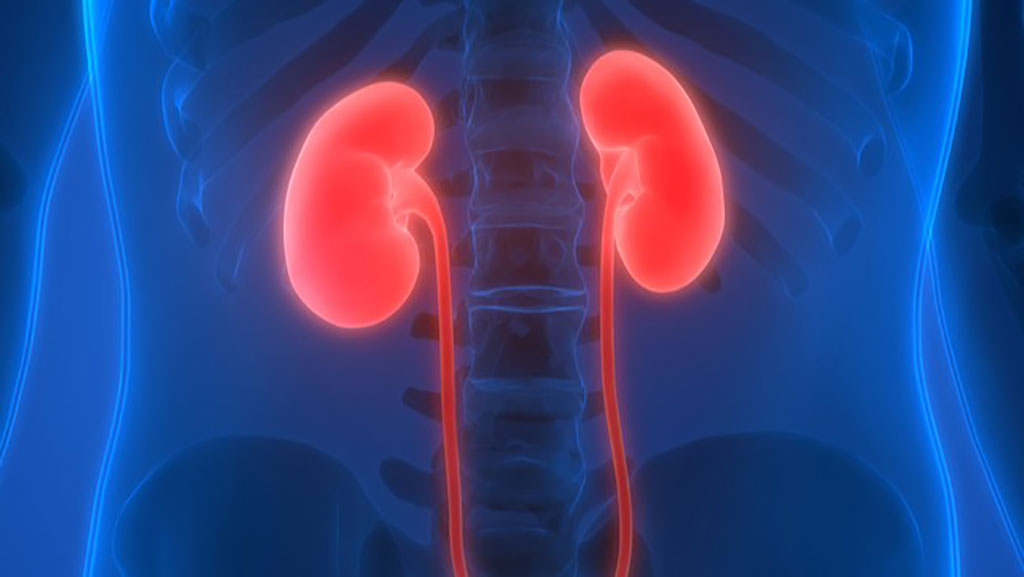Simple Blood and Urine Test Can Help Patients with Chronic Kidney Disease
Posted on 21 Sep 2022
Chronic kidney disease is a long-term condition, where the kidneys don't work as well as they should. It's a common condition, with 10-15% of the general population affected. However, in the early stages it rarely has symptoms, and most people are unaware they have it. While it can affect anyone, it is often associated with getting older, and it is more common in people who are black or of south Asian origin. Only a very small number of people (1 to 4%) with chronic kidney disease will progress to kidney failure requiring treatment, either dialysis or kidney transplantation. A simple blood and urine test can identify those most at risk of severe complications of chronic kidney disease. By using a series of simple blood and urine tests, physicians could help identify more high-risk people and refer them to hospital before they progress to this late stage. In turn, nephrologists (kidney specialists) may be able to slow patients’ progression to kidney failure, or prepare them for dialysis or transplantation, ultimately saving lives. However, many patients and physicians remain unaware of the test’s life-saving potential, according to a new study.
For the study, led by the University of Glasgow (Glasgow, Scotland), the researchers studied more than 1.8 million patients in SAIL (The Secure Anonymized Information Linkage Databank, UK’s national data safe haven of de-identified datasets principally about the population of Wales) and around 465,000 UK Biobank participants. The researchers found that not enough people with chronic kidney disease were routinely being given this recommended test. The study results have prompted renewed calls from kidney specialists to encourage more patients to be given access to this test.

In 2021 NICE (National Institute for Health and Care Excellence) guidelines on chronic kidney disease recommended the use of the Kidney Failure Risk Equation (KFRE), which includes measurement of protein in the urine (albuminuria). The KFRE allows doctors to define an individual’s risk of kidney failure, allowing those most at risk to be referred for specialist care in a timely way. The KFRE test is currently available for anybody with chronic kidney disease stage 3 or worse. However, in the study researchers found that the KFRE test is only probably performed in a tiny minority of those eligible, largely due to lack of awareness. Despite chronic kidney disease being a common condition, many patients do not know they have it and they may not understand the importance of attending for blood tests and of providing urine samples.
Albuminuria tests are cheap and easy, available to everybody, and ideally should be performed in anybody with chronic kidney disease at least once a year. The study shows that, currently, this only happens in around 20-25% of people with chronic kidney disease. Without the albuminuria tests, patients cannot have KFRE tested and therefore may miss out on important treatments. Researchers estimate around 75-80% of people with chronic kidney disease are not routinely having their urine tested for albuminuria, and may therefore be missing out on early, preventative treatments to reduce risk of kidney failure, heart disease and death. The research also found that KFRE test results were more likely to be elevated in non-white ethnic groups, in-keeping with the previous literature suggesting that non-white people are at the greatest risk of chronic kidney disease progression.
“Kidney disease is common amongst adults, but only a small number of people need to see kidney specialists,” said Dr. Jennifer Lees, University of Glasgow researcher and a NHS kidney specialist. “It is important that all people with kidney disease receive the right treatments at the right time, and these blood and urine tests are an easy way to ensure this happens. Our research shows that at present, not enough people with kidney disease have their urine tested, and therefore may be missing out on the best treatments.”
“GPs need to identify which patients will benefit most from referral to hospital clinics,” added Dr. Michael Sullivan, from the University of Glasgow’s School of Cardiovascular and Metabolic Health. “The KFRE is effective at helping GPs identify and refer these patients early, before kidney disease becomes more advanced. More patients with kidney disease need to have access to this new tool. Our research shows that for this to be possible, more patients need to bring urine samples to their GP.”
Related Links:
University of Glasgow













